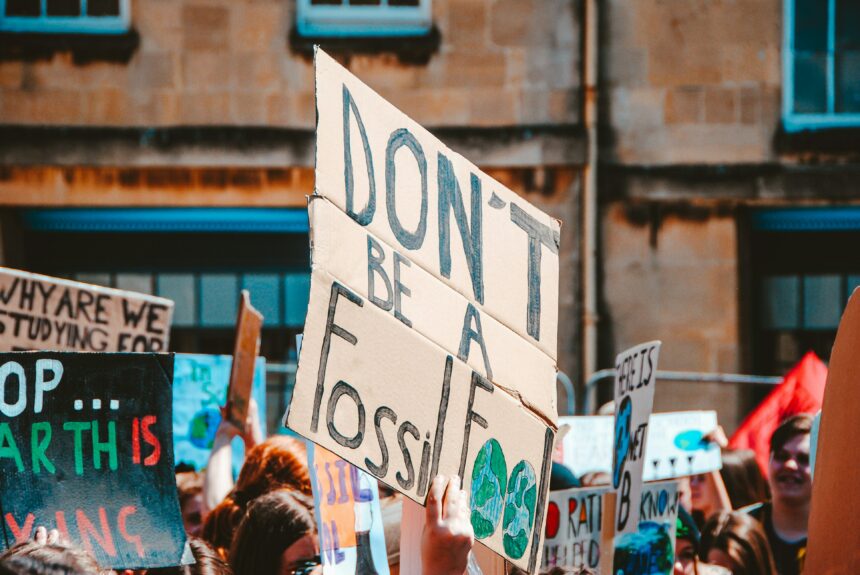This article originally appeared in RealClearMarkets
As American tech companies dominate the S&P 500 while facing challenges from fresh-faced startups and increased global competition, the saying “innovate or die” has never felt truer. This is particularly true in the energy sector as companies try to meet growing energy needs while also hitting climate goals. Major oil and gas companies are going to be instrumental in addressing both problems.
>>>READ: Don’t Make LNG Exports the Next Keystone XL
While many people remain skeptical about their intentions, major oil and gas companies are increasingly investing in clean energy projects. They are pouring funds into wind, solar, and bioenergy ventures and are also actively participating in research and development into cutting-edge technologies.
For example, Chevron has invested in several renewable power projects and is backing several startups for batteries and long-term energy storage. Shell is partnering with NuScale, a small modular reactor company, to explore clean hydrogen production. Exxon has investments in lithium projects, advanced biofuels, hydrogen, and carbon capture, including ownership of 1,300 miles of pipeline to transport CO2. BP has a diverse portfolio of low- and zero-carbon energy projects. Collectively, capital expenditures from oil and gas companies into clean energy totaled some $20 billion in 2022, with billions more in R&D.
These investments could pay huge dividends to bring abundant, affordable, and clean power to consumers. Large energy companies, leveraging their engineering and technical expertise, sizeable R&D budgets, and global reach, are uniquely positioned to accelerate the deployment of clean-energy technologies. This cross-pollination of expertise accelerates the development and implementation of innovative solutions, ultimately benefitting consumers.
Critics have dismissed these investments as greenwashing, arguing that they are not serious investments in the transition to a low-carbon economy. Exxon’s attempt to develop a low-carbon biofuel made from algae is one such example. The company recently pulled the plug on algal biofuels after spending $350 million since 2009. If that were greenwashing, that’s one long, expensive con – one in which they duped the Department of Energy’s National Renewable Energy Laboratory as it conducted some of the research, communicated optimism, and will continue basic research on algae strains.
>>>READ: Three Ways Immediate Expensing Helps the Environment
The reality is some investments in clean energy technologies will pay off and others will not. In October 2021, Hertz made a big commitment to electric vehicles, saying it would purchase 100,000 Teslas, 175,000 EVs from General Motors, and another 65,000 from Polestar. Former NFL quarterback Tom Brady led the campaign, saying, “I’ve been driving an EV for years and knowing Hertz is leading the way with their electric fleet speaks to how the world is changing and the way companies are approaching being environmentally and socially conscious.”
Earlier this year, though, Hertz announced it was selling off a third of its EV fleet to purchase cars that run on gas. It expects to take a $245 million loss. Hertz’s effort was not greenwashing, but rather an investment that didn’t go as planned. Free, competitive markets provide opportunities for firms to provide products that consumers need while allowing uncompetitive, uneconomic projects to go the way of Blockbuster Video and the fax machine.
Specious claims of deceit and greenwashing have resulted in lawsuits from states and litigious activists. In 2020, Delaware’s Attorney General Kathleen Jennings filed a lawsuit against 30 oil companies and the American Petroleum Institute, claiming that Big Oil’s investment in clean energy and climate solutions was greenwashing. The state’s Superior Court’s Judge dismissed the claims “with leave to amend with particularity” because Delaware “failed to specifically identify alleged misrepresentations for each individual defendant.”
If skeptics have the evidence, they should bring it. The U.S. Securities and Exchange Commission has rules on the books that protect against fraud and greenwashing, and if companies are legitimately and intentionally deceitful, they should be penalized. Until then, the allegations are hollow.
It’s also essential to recognize that the world’s energy demand is still predominantly met by fossil fuels, which will be critical to meeting growing energy needs and eradicating energy poverty. Expecting major energy companies to cut ties with oil and natural gas production is not feasible or pragmatic. Nor is it good for the environment. If American and European producers cede ground to state-owned despots, the environment will end up worse off.
Rather than dismissing big oil’s investments in clean energy as greenwashing, we should encourage and monitor these initiatives, hold corporations accountable, and recognize the positive contributions they make for energy affordability, energy security and higher standards of living around the world. They will be necessary players for a world with greater energy access and fewer global emissions.
The views and opinions expressed are those of the author’s and do not necessarily reflect the official policy or position of C3.
